A post shared by Yogesh Kumar (@yogeshbharddwaj)
You play the lead opposite Yashpal Sharma who Idespite his talent and capabilities, he’s been underutilized by Bollywood. So what was your experience working with him?
Undoubtedly working with him was a learning experience. Every artist has this bug and that bug wants the kind of food.
When I was training in the film institute,
I gradually realised what kind of cinema I wanted to be a part of or what kind of actors I like as ascertained by their style of acting. So I achieved that clarity very early in my life. From then, I wanted to be a part of a film whose subject and content titilates me. And then I wanted to work with some actors that align with what I want. So I am lucky because Chhipkali is exactly that film and it has the actor whose work I’ve seen while growing up. So this opportunity was right up my alley. If I was doing a commercial film with Yashpal Sharma whose subject was haywire and we just would have enjoyed and had fun, so I wouldn’t have enjoyed that. But in Chhipkali, you are getting good content with a good actor where you are performing and saying something and your hunger is getting satiated as an actor, nothing can be better than that.
How pivotal Koushik Kar’s role was in getting the best out of the story, the situations and your character?
The film entirely rested on Koushik Kar’s shoulders because if Koushik Kar was not there, this film wouldn’t have existed. Because he is the one who sowed the seeds, grew the tree and the fruits it bore is being distributed among his team members including me. And I am not going to hesitate while saying this but getting such a clear director is a very good thing. Because most of the time, we do go on the sets but we see it in the eyes of the director that he himself is confused, what would he gonna explain about the scene? So even an actor has that itching to work with a director who makes you question yourself countless times as to whether I am doing right or wrong. The biggest USP about Koushik was that with his content, craft and design, he was so clear that all our doubts disappeared. Because when the director is clear about his vision, it becomes easy for the actor to understand things. And Koushik has lived with the script for a long time because previously it was a play and Koushik used to act in it as well. He is a brilliant actor. He converted it into this film. So it was completely imbibed in his consciousness. He was very clear and that clarity benefitted me, Yashpal Sharma and other actors.
Now Chippkali definitely seems like an unconventional film. Unfortunately, in India, people don’t gel well with an unconventional story. Regardless of that fact, to what extent do you believe that a film like Chipkali can bring about a change in viewing habits? And whether it would push more film-makers to tell unconventional stories and actors to act in out of the box unconventional movies?
I strongly believe that this was the right time for a film like Chhipkali to release. After Covid, many industries have undergone major changes and there have been experiments. No one could say with guarantee post-Covid that this is going to work. Everyone was in doubt as to how things would work out now. And then OTT emerged as the leading platform. Especially if we talk about the film business. After OTT, what happened was that the content reached the deepest corners of the country.
People in villages are consuming Indian as well as international content directly through these platforms. So the experiment has benefitted people to see the kind of cinema that aligns with their taste. And every kind of content has its audience now. Because if you keep showing me white, I won’t perceive the value of black. Now I have access to all the different colours and I can pick and choose my favorite. Like I hadn’t seen the colour green but it is so beautiful. So with this era of experimentation, even if your content has an audience of four people, they’ll watch it with utmost attention and keenness. And the philosophy of Chhipkali can be understood by many because there are so many people who are reticent, who cannot express and expletives their inner thoughts and philosophy with anyone else. Or they’ll be lost in their own web of questions. So Chhipkali is an important film for that demographic. When they are going to see it, they are going to like it so much that even if they don’t talk about themselves, they would certainly talk about Chhipkali with other people. It’s such a mind-blowing film that it should be watched. I am very positive but then again it’s an era of experimentation, it’s hard to say how it’ll work.
What was the most challenging thing for you as an actor during the stint of the film? And what was the set like?
The biggest challenge for me was that till date all the detectives that we have seen, they are fairly popular and part of one’s psyche. For example, we’ve seen Pankaj Kapur playing Karamchand and that an Indian detective would come munching on a carrot and he would investigate with a quirk. We’ve seen detectives of Byomkesh Bakshi. We’ve seen so many detectives in Hollywood. But all of them used to solve their murder mysteries with the help of certain things in the plot of the movie. My challenge was that the person I was going to investigate, he is not an ordinary man. He is a writer who writes about those things that are happening in the society that people willfully and deliberately choose to ignore and stay ignorant. He is the kind of writer who writes about philosophy, about time dimension, who is well-versed with science and human emotions. And he is a philosopher. So if I have to go to a writer and a philosopher for an investigation, I know that no matter how much I try, he’ll trap me in his web of words. So If I have to investigate a writer and a philosopher, I should have enough knowledge and I should be well-read. So I had to read a lot of things which was beneficial for me. And the kind of script it was, my character doesn’t have one layer. You’ll get to see atleast 20-25 layers. So for me, what was difficult was to choose which thread to grasp. If I approach this case practically, I’ll miss out on emotional and human angle. If I approach it with an emotional or human angle, I’ll miss out on practicality. So to get that right tone, the right balance was difficult for me. And that took some time. But the good thing was the reason why I got that balance was because the atmosphere of the sets was very theatrical. And since I come from a theatrical background, I know how things are organised, how rehearsals are taken and the teamwork. I saw people sleepover on the sets, cooking food. So the teamwork and the director’s clarity helped immensely.
Coming to your previous film Lost, you got to work alongside Pankaj Kapur and Yani Gautam. And both the film and your performance received great reception. So what were some of the memorable experiences from that film? What did you learn from your co-actors on sets?
The most memorable thing that happened with Lost was the fact that I got an opportunity to work with the legend Pankaj Kapur. We use to have a class in our acting course called actor study in which we had to study one International actor and one Indian actor. So five actors would be from Hollywood and five actors from Indian cinema. So I had taken Daniel Delewis as the international actor and Pankaj Kapur as the Indian actor. From the very beginning, I used to see Pankaj Kapur’s work and I used to think that in India, in terms of characterization, no other actor can match Pankaj Kapur. Because he is the only actor who transforms himself completely. His character in Maqbool is very different from Lost or Halla Bol or Blue Umbrella or Office Office. So naturally, I was a huge fan of his characterization and when I got to know that it’s one to one scene with him, it was memorable for me. And the biggest thing was I was concerned how will I break the ice with him and what would be our first conversation. But within five minutes from our introduction, he himself came to me and asked me to rehearse the dialogues. So I was like If a legendary actor is making a new actor like me comfortable, there is nothing better than that. I had enjoyed every second of that film because of Pankaj Kapur. Yami Gautam is a wonderful artist too who works on her craft. She is not purely commercial and she understands her craft and work. So that also felt good.
You’re also part of Ajay Bahl’s Ladykiller. What should one be looking forward to from that film?
My scenes are with Arjun Kapoor and my character is interesting and entertaining. People would remember my character.
You reunited with Anirudh Roy Chowdhury for another film, can you tell me something about that project?
That film has been shot already and it has Pankaj Tripathi in it. I am fortunate because all the actors I had dreamt of working with, I got the opportunity to work with them. Pankaj Tripathi was one of them. He is very loveable and after our scene together, he called me to his vanity van and complimented me that ‘I am doing really well. Just stay focused on this craft and you’ll go very far Guru’. So that ‘Guru’ was something I wanted to hear from him. So I enjoyed it a lot with him and the best part was that he is such an actor that where he is right now, he doesn’t impose himself on new actors. He is humble, cooperative and accomodative of how I wanted to Portray my character. And you won’t feel like the love Pankaj Tripathi is exuding for you is superficial. He is naturally brimming with love. If anyone meets him, they’ll feel like they have known him for ages. You can talk to him for hours and he is such a good listener. I cannot disclose the genre of this film but I can say this with conviction that people haven’t seen Pankaj Tripathi play such a complex role in his life. You’ll see lots of shades of him as an actor in this particular film that you might not have seen in all his previous films. It’ll be very different.
How has been your acting journey so far? What are some good things that happened and what are some bad things that you had to navigate? Also tell us about your acting background.
My acting background was nothing. Nobody in my seven generation has been a part of this world. Even I don’t know since the bug of acting gets inside you without you knowing. When I was in class 3-4, I used to be a part of jagrans and keertans in my village. I liked it. Why I liked it? I don’t have an answer to that but I used to enjoy it. Then I used to act, direct skits for school assemblies. All these things were a part of my childhood but I never thought that I’ll be making a career out of it. I didn’t even have that opportunity because the background I came from. Because the emphasis was always on how to change our household situation after completing 12th and looking for a stable job. Luckily, when I was doing graduation, Jaideep Ahlawat had come to prepare a play for us for a youth festival in Haryana. I was playing the lead role in that. So it was Jaideep Ahlawat bhaiya who told me in a serious tone that I have something in me that completely aligns with the art of acting. He suggested that I pursue this. He told me that ‘even you don’t know about your hidden potential’. So his advice motivated me. And because I hailed from a village, even though I didn’t have any exposure but I was sure that I wanted a different world for myself and that I don’t want to limit myself to my village. So those two months I spent with Jaideep Ahlawat, it gave me that exposure and made me realise that this is what I wanted to do in life. And by doing this, I’ll be able to lead a happy life. I was rehearsing for 22 hours and we were not getting tired. We were enjoying it. That was the turning point. He suggested that I join the Institute. And since then I have been acting. My only challenge was that since I was the only son in my family and my father was handicapped, I was managing the household. So it was a challenge for me to build that bridge between personal and professional life. Because I was not sure about my success and my family was concerned that I’ll dedicate four years of my life in the acting institute and then there is no fixed timeline pertaining to my success. So who would run the household? But I assured them to leave that on me. I’ll somehow take care of things but let me do what I genuinely love to do. I had promised them but how will I look after the household with me being in the institute? So those 5-6 years I don’t even want to recall. It was difficult. But I came past that and perhaps what I am today is the output of that.
Read all the Latest Movies News, Entertainment News
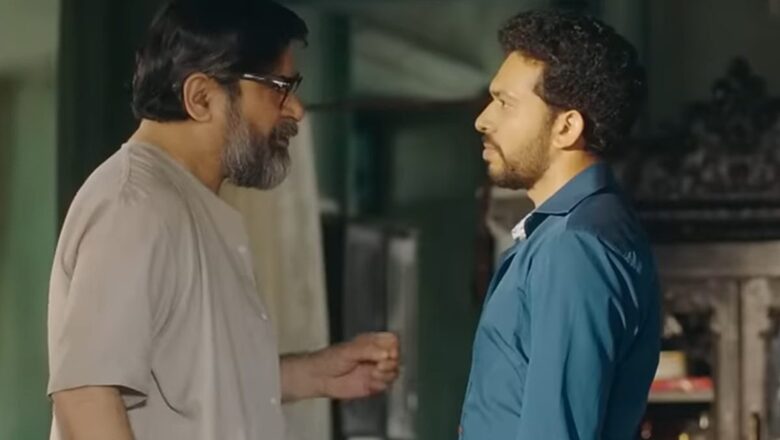











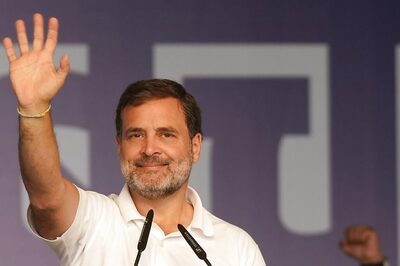


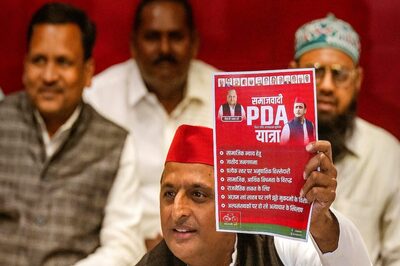

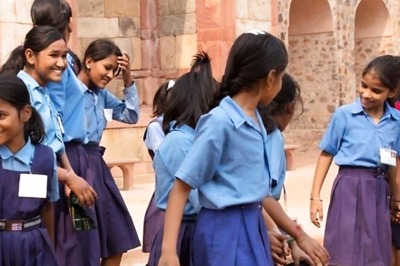
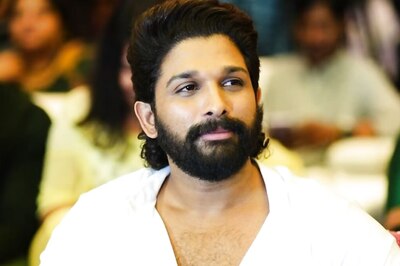
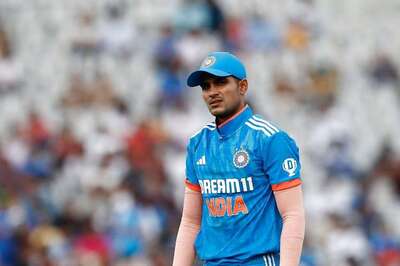
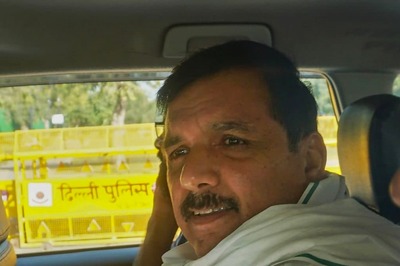
Comments
0 comment